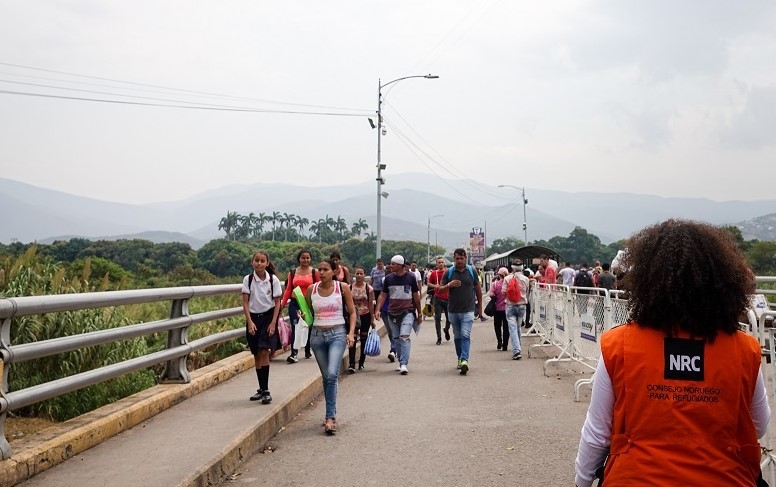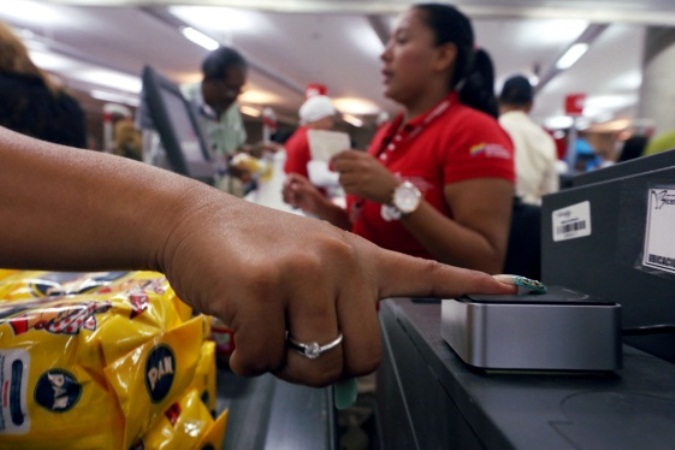Caracas, April 28th, 2020
Maimunah Mohd Sharif
Executive Director of UN-Habitat
Delivered at the Office.-
First of all, please receive a cordial greeting and our wish for the greatest success in your efforts. Also, that you be in good health with your family members in these circumstances. The social and human rights organizations that subscribe to this communication want to communicate our concern about the exclusion of Venezuela from the “Covid-19 Response Plan” that UN-Habitat has designed for 64 countries in the world. According to the criteria defined by your institution (populations lacking adequate housing and without basic services such as water and sanitation, with a high percentage of informal workers), we do not understand how a country that suffers from a Complex Humanitarian Emergency and that has generated the greatest forced migration crisis in recent years on the American continent, is not a part of UN-Habitat’s focus under the current Covid-19 pandemic.
According to the Report of the United Nations High Commissioner for Human Rights on the situation of human rights in the Bolivarian Republic of Venezuela, released on July 4th, 2019, “The diversion of resources, corruption and lack of maintenance in public infrastructure, as well as underinvestment, have resulted in violations of the right to an adequate standard of living, among others, due to the deterioration of basic services such as public transportation and access to electricity, water and natural gas. ” On her part, on February 9, 2019, the special rapporteur on the right to adequate housing, Leilani Farha, signed a communication with 3 other rapporteurs (Food, health and extreme poverty and human rights), where it was stated that “Millions of People are suffering from a lack of food, essential medicines, a shortage of basic needs, including personal hygiene, power cuts, and inadequate housing conditions. Conditions continue to worsen day by day, placing many lives at risk. ” Mrs. Farha specifically referred to the complaints where “entire individuals and families have been evicted from their homes, with excessive use of force, leaving them in a street situation.” The group of experts also stated that the lack of updated official information on food, health and power cuts made it impossible to assess the true magnitude of the crisis.
The Survey on National Food Security of the World Food Program of the United Nations, carried out at the end of 2019, reveals that 4 out of 10 households in our country report daily interruptions of the electric service, 72% have an irregular supply of gas and 25 % of households do not have stable access to drinking water. In the Survey on Humanitarian Needs carried out on March 2020, it is recorded that only 19% of basic sanitation facilities are safe and more than 800,000 people in rural areas still practice open defecation. It is estimated that 4.3 million people are facing humanitarian needs related to water and sanitation, of which 1.4 are children under 5 years old and 2.3 million are elderly. On the other hand, during the month of March, the Executive Branch released figures from the survey that it carries out through the automated system of official information “PATRIA”, which shows that 88% of households report having difficulties to access food, 61% difficulties to access drinking water and 46% difficulties to access gas for domestic use.
According to information compiled by the Venezuelan NGO Provea, which monitors the State’s levels of compliance with its obligations to the right to housing, in 2019 the Venezuelan State just built 4,820 houses, despite the fact that official information ensures that 500,000 housing units were built. According to data from the Committee of people affected by Blackouts during the year 2019, 80,700 power supply failures took place throughout the country. During the quarantine, this situation has persisted, which is why various states of the country experience unscheduled interruptions in their electricity service of up to 6 hours a day. The same situation is denounced regarding access to drinking water, domestic gas and cell phone services, which is why Venezuelan households cannot be considered as “safe” for the proper compliance of the social isolation measures under the pandemic. According to a study of citizen perception of the Venezuelan Observatory of Public Services (OVSP), carried out in December 2019 in 10 of the main cities of the country and in 27 municipalities, only 16.7% of those surveyed indicated receiving continuous potable water service in their homes, despite 91.8% of the total sample claiming to have access to pipes.
The crisis of basic services in the country is a permanent cause of protests by the affected communities. According to the Venezuelan Observatory of Social Conflict (OVCS), during the month of March 2020, 184 protests were held throughout the country claiming this lack of access, 87 of them specifically regarding access to drinking water, 51 protests for lack of domestic gas and 46 protests due to the interruption of electrical service. This collapse is reflected in the country’s public hospital system. The 2019 Survey on Public Hospitals carried out by the organization Doctors for Health showed that of the 40 surveyed hospitals in the country 78% reported water failures, while 20% spent all year without water service. Likewise, 63% reported electric failures. For their part, 7 organizations defending the right to education published at the end of 2018 a national report in which they document that the interruptions of water service in schools are widespread and rationing and power cuts prevent regular hours of class. According to complaints received by the Venezuelan Observatory of Prisons (OVP), the lack of water in prisons forces those deprived of liberty to pay up to $ 50 USD to access a “water truck.”
We do not know whether the decision not to include Venezuela in the Covid-19 response plan to be implemented by UN-Habitat responds to the limited collaboration of the country’s authorities or, based on unsubstantiated information on the ground, it is considered that in Venezuela there are no deficits in the fulfillment of State obligations regarding the right to decent housing. In this case, our organizations are willing to keep your office informed about the data we collect on the situation of both access to housing and public services in the country.
In any case, the organizations that subscribe to this communication request your office to urgently reconsider this decision, and take all necessary steps to include Venezuela in the Covid-19 response plan to be implemented by UN-Habitat.
Thanks for your attention to this communication, we bid you a cordial farewell:
1) A.C Anzoátegui Sin Sida
2) A.C. Atraem
3) A.C Los Naguaritos
4) A.C. MÉDICOS UNIDOS DE VENEZUELA
5) A.C. Radar de los Bsrrios
6) A.C. Nuevos Despertares
7) Acceso a la Justicia
8) Acción Solidaria
9) ACCSI Acción Ciudadana Contra el SIDA
10) ACOANA
11) Amigos Trasplantados de Venezuela
12) AQUI CABEMOS TODOS
13) Asamblea de Ciudadanos de Candelaria
14) Asociación Civil Cedisuc
15) Asociación Civil Impulso Vital Aragua ACIVA
16) Asociación Civil Saber es Poder-AsoSaber
17) Asociación Civil Uniandes
18) Asociación de Profesores Jubilados de la UPEL Maracay. APROJUPEL MARACAY
19) Asociación Nupaz Internacional
20) Asociación Venezolana para la Hemofilia
21) ASOVIDA (Asociación por la Vida) Mérida
22) Aula Abierta
23) AVESA. Asociación Venezolana para una Educación Sexual Alternativa
24) Brigadas Azules
25) Caleidoscopio Humano
26) CARIBANA Cooperativa de Turismo Responsable
27) Catedra de Derechos Humanos de la Universidad Centrooccidental Lisandro Alvarado
28) Cátedra de la Paz y Derechos Humanos Mons. Oscar A. Romero A.C
29) Centro de Acción y Defensa por los Derechos Humanos (Cadef)
30) Centro de Formación para la Democracia CFD
31) Centro para la Paz y los Derechos Humanos de la Universidad Central de Venezuela
32) Centro para los Defensores y la Justicia (CDJ)
33) Cepaz – Centro Justicia y Paz
34) Ciudadanía Con Compromiso A.C
35) Civilis Derechos Humanos
36) Clima21 – Ambiente y Derechos Humanos
37) Codevida
38) Comisión Nacional DDHH Federación de Colegios de Abogados de Venezuela del estado Táchira
39) Comisión Nacional DDHH Federación de Colegios de Abogados de Venezuela del Estado Lara
40) Comisión para los Derechos Humanos del Estado Zulia (Codhez)
41) Comisión para los Derechos Humanos y la Ciudadanía CODEHCIU
42) Comunidad en Movimiento A.C
43) Conciencia Ciudadana A.C
44) Consorcio social Catuche
45) Control Ciudadano para la Seguridad, la Defensa y la Fuerza Armada Nacional
46) Convite AC
47) Crea País
48) Creemos Alianza Ciudadana Miranda
49) Defensa en Acción
50) Defiende Venezuela
51) EDEPA A.C
52) EXCUBITUS Derechos Humanos en Educación
53) Federación de Asociaciones de Profesores Universitarios de Venezuela (FAPUV)
54) Frente en Defensa del Norte de Caracas
55) FUNCAMAMA
56) Fundación Agua Sin Fronteras
57) Fundación Aguaclara
58) Fundación Ambientalista de Caricuao.
59) Fundación Emprendedores Solidarios
60) Fundación Incide
61) Fundación La Gran Victoria
62) Fundación MAVID Carabobo
63) Fundación para el Desarrollo Integral (FUNDESI)
64) Fundación ProBono Venezuela, Provene
65) Fundación Rehabilitarte
66) Fundación Sociedad Amigos de Barquisimeto
67) Fundapmotriz
68) Fundaval
69) Funvive ( Fundación Ambiental Internacional Vida Verde )
70) Geografia Viva
71) GobiérnaTec
72) Gran Familia de la Salud
73) Impulsa Latinoamerica
74) Instituto Mead de Venezuela A.C.
75) Instituto Venezolano de Estudios Sociales y Políticos INVESP
76) Justicia y Paz OP Venezuela
77) Labo Ciudadano
78) Laboratorio de Paz
79) Laguarura.org
80) Liga Merideña contra el Sida A.C.
81) MAPANI VENEZUELA
82) Monitor Social A.C.
83) Movimiento Uniendo Voluntades
84) Movimiento Ciudadano Dale Letra
85) Mujer y Ciudadanía A.C.
86) Observatorio Electoral Venezolano (OEV)
87) Observatorio Global de Comunicación y Democracia (OGCD)
88) Observatorio Venezolano de Conflictividad Social (OVCS)
89) Observatorio Venezolano de Prisiones
90) Oportunidad AC
91) Organización Humanitaria Zona 10
92) Organización Comunitaria Brisas Orinoco
93) Organización Comunitaria Esperanza Punceres.
94) Organización Comunitaria Fe, Alegría y Paz
95) Organización Comunitaria Libertador
96) Organización Comunitaria Solidario Punceres
97) Organización Humanitaria Las Vírgenes
98) Organización Natural Bio Conservation A.C
99) Piloneras
100) PROMEDEHUM
101) Proyecta Ciudadanía A.C
102) Red Anzoategui Unido por los Derechos Humanos (REDAUDH)
103) Red de Instituciones Larenses
104) Red de Organizaciones de Derechos Humanos del Estado Anzoategui REDHANZ
105) Red Organizaciones vecinales de Baruta
106) Red Venezolana de Gente Positiva
107) Redhelara
108) RedOrgBaruta
109) Semillero Humanitario A.C
110) Sinergia,Red Venezolana de Organizaciones de Sociedad Civil
111) Sociedad Hominis Iura (SOHI)
112) StopVIH
113) Todos por el Futuro
114) Transparencia Venezuela
115) Una Ventana a la Libertad
116) Unión Afirmativa
117) Unión Vecinal para la Participación Ciudadana A.C
118) Universitas Fundación
119) Vicaría de DDHH de la Arquidiócesis de Barquisimeto




